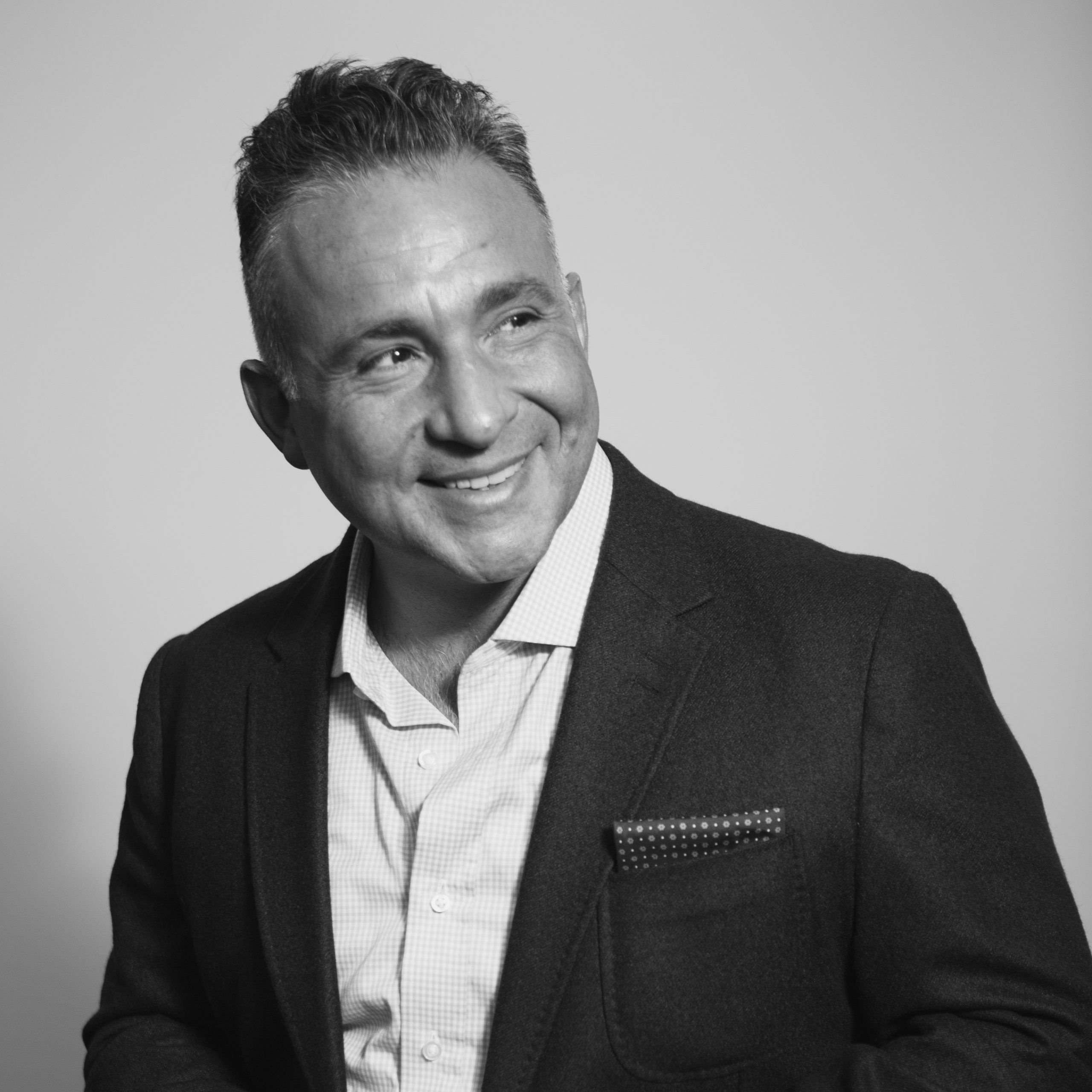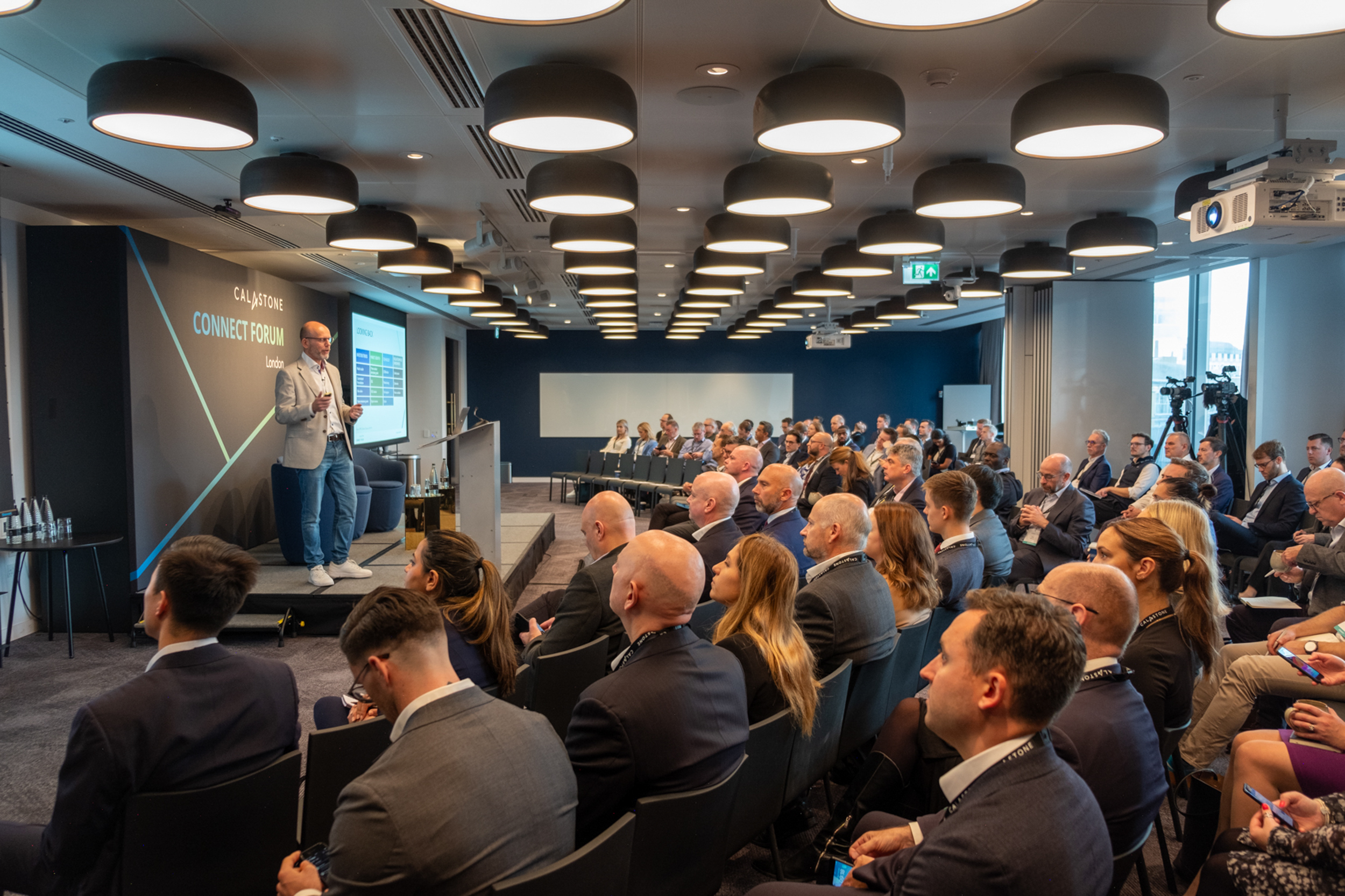Attended by more than a hundred industry leaders from across the funds and asset servicing community, it was great to see so many people at our flagship Connect Forum conference in London.
Digitalisation was the overarching theme of the event, with experts discussing how tokenisation is finally entering the mainstream together with the rise of Artificial Intelligence (AI). Other talking points included the emergence of new asset classes and the drop off in appetite for all things environmental, social, governance (ESG).
As the world undergoes a transformation, so too is the funds industry.
Get ready for the day after tomorrow
History is littered with examples of once dominant and successful businesses, which failed because they did not adapt to the changing times. Names like Blockbuster or Kodak certainly spring to mind here.
Ross Fox, our Head of UK & Europe, told us that a fourth industrial revolution is happening, and it is being underpinned by rapid advances in new technologies, such as AI, quantum computing and robotics.
Preparing for the inevitable disruption will be critical if businesses are to survive.
Referencing Peter Hinssen’s book ‘The Day After Tomorrow’, Ross said “Most businesses spend a lot of time concentrating on the ‘today’ work, namely responding to emails or organising meetings. They also devote a decent amount of attention to the ‘tomorrow’ work, which might be budgets for 2024, for example. And then, there is ‘the day after tomorrow’ work, which involves firms exploring new technologies or operating models that could transform their businesses over the long term.”
While many businesses normally say they adopt a 70%-20%-10% split when allocating resources for projects that happen either “today”, “tomorrow’ or “the day after tomorrow” respectively, the true ratio is probably closer to 90%-10%-0%, Ross added.
We heard this is because many businesses are constrained in what they can do, as they are usually too busy dealing with the legacy problems of yesterday.
As the pace of change accelerates, it is clear to me that a massive cultural change will be required from the funds industry, if it is to evolve, and quickly.
Obtaining alpha during the macro headwinds
AuM (assets under management) controlled by active managers has taken a massive hit over the last 12 months. According to Boston Consulting Group (BCG), global AuM fell by 10% in 2022 to $98 trillion, the second biggest single year fall since 2005. [1] Additionally, fund operating costs are steadily rising off the back of regulation but also because of inflationary pressures and falling management fees.
Speaking during our Connect Forum, Diane MacFarlane, Head of Security Services at J.P. Morgan, highlighted that some consultants are urging asset managers to trim their operating costs by 17% -19% each year – well above the average 5% – 10% in annual savings which firms usually try to achieve.
As I very often say, and I shared at the Connect Forum, “Cost reduction is the purest form of alpha”.
While savings can be obtained through consolidation or renegotiating terms with service providers, we heard that new technologies will play a key role in helping firms make these tough cost savings.
Diane said AI is expected to have a major impact on fund operations and technology. “AI tools can get rid of tasks, which people should not be doing, whether it is something like co-pilot in coding for technology change, or ChatGPT for collating due diligence first draft responses. Other use cases include leveraging AI to improve reconciliation efficiency or to predict and automate tax reclaim outcomes,” she said.
AI could have a positive impact on the front office, and may even help firms generate added returns.
Richard Godfrey, Chief Operating Officer at M&G Investments, said the technology is already being used to support the investment process within M&G. AI has created efficiencies by rapidly amalgamating data from many sources, finding and summarising relevant information, and suggesting further inquiries. He added that AI can also be used to analyse vast data sets, detect patterns and generate deeper insights supplementing our active management decision making process.
While innovation is critical, institutions do need to get the basics right before they start integrating disruptive technologies into their operating models, noted David Ferguson, CEO of Seccl, an Octopus-owned embedded investment platform.
He added, “I listened to a big insurance company talk about how they are using AI in some interesting ways, but this company cannot process pension transfers efficiently. Until they can help investors transfer their pensions from provider A to provider B in a cost effective and seamless fashion, then they maybe shouldn’t be talking about AI.”
Embracing new products
I have seen managers increasingly diversify away from their flagship products into different asset classes and strategies, as they look to broaden their investor base.
This was discussed at length during our Connect Forum.
“You are seeing a different type of barbell emerge whereby exchange traded funds (ETFs) and private markets are making up a bigger share of the client portfolio,” said Mel Seymour, Global Head of Client Experience at BlackRock.
Sparked by increasing retail investor flows, ETF assets are expected to surge by 50% to $15 trillion by 2027, [2] while AuM in private market strategies is projected to reach $18.3 trillion – also by 2027, up from $9.3 trillion today. [3]
Despite all of the talk, investor appetite for ESG funds may not be as strong as previously assumed.
Over the last few years, asset managers have attempted to integrate ESG criteria into their investment approach, as they try to make themselves more appealing to investors seeking out sustainable returns.
However, Dominic De Lisle, our Director of Content and Communications, said inflows into ESG funds were starting to slow. This is backed up by data from our global Fund Flow Index, which showed 2023 may be the first year that non-ESG sees inflows, while ESG sees outflows.
So what is behind the slowdown?
He believed some investors may have been put off ESG funds following accusations of greenwashing against several high-profile asset managers.
He also noted our research had previously shown that millennials are not as driven by a sense of social responsibility when investing as many people would have thought. Our research revealed ethical considerations had limited bearing on millennials’ decision to invest in funds, at least relative to other factors like long-term returns and low fees.
Whether ESG funds stay out of favour over the long-term is yet to be seen.
Meeting the needs of the next gen investor
According to analysis by BCG and ADDX, a blockchain enabled investment platform focused on private assets, the tokenisation market is projected to grow 50-fold by 2030 to reach $16.1 trillion, contributing to around 10% of global GDP.[4]
Amid the challenging macro headwinds, we are seeing a number of asset managers embrace tokenisation.
“Mutual funds emerged 100 years ago. ETFs emerged 30 years ago. We believe tokenisation is the next exciting milestone in the fund industry’s evolution,” said Varun Atre, our Chief Product Officer.
I believe tokenisation will bring about accessibility and liquidity to both traditional and alternative assets, by facilitating fractional ownership of everything from real estate to private equity.
By digitalising not just the fund but the underlying assets, it increases both transparency and efficiency of how things are traded and held, generating operational savings for asset managers and cost savings for end investors.
We heard from our CTO Adam Belding that the tokenisation of underlying assets could also allow fund managers to offer highly personalised investment solutions – which were previously only available to large institutions via managed accounts – but to retail clients.
I would argue that tokenisation will not just help the funds industry regain market share , but could enable managers to win the trust of a new legion of retail investors.
Taking charge of the reins
What we learned from this year’s Connect Forum is that a wholesale cultural change within the funds industry is needed if managers are to effectively digitalise and prepare their businesses for the “day after tomorrow”.
Steps in the right direction are taking place and this is shown in the work we are already doing with Schroders and other asset managers on tokenisation. Our roadshows continue to take place in our other markets around the world and we look forward to sharing further insights and industry success stories with you at next year’s forum.
[1] Boston Consulting Group – May 15, 2023 – Global Asset Management Industry must transform to thrive amidst changing macroeconomics
[2] ETF Stream – August 15, 2023 – Retail investors to drive next phase of ETF growth
[3] Preqin – October 5, 2022 – Global private capital AuM to double to $18.3 trillion by 2027 – Preqin forecasts
[4] ADDX – September 22, 2022 – BCG, ADDX report; Asset tokenisation to grow 50x into US $16 trillion opportunity by 2030





















